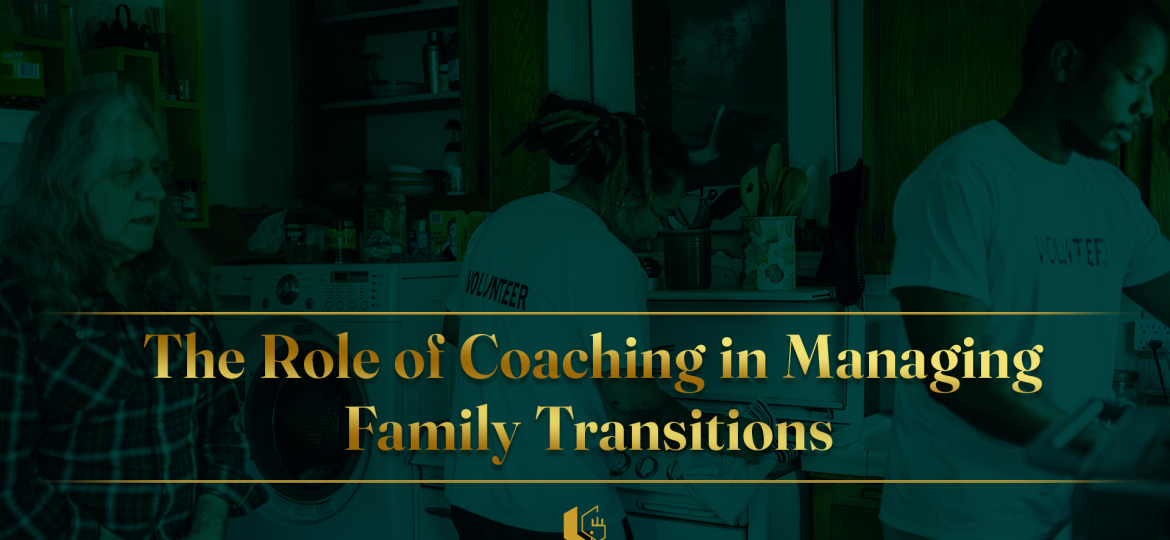
Introduction
Family life is full of transitions and transformations. Some of these changes are planned and joyful—like marriage, the birth of a child, or buying a new home. Others may be unexpected or challenging, such as divorce, the loss of a loved one, migration, or job changes. How a family manages these transitions has a direct impact on the quality of individual lives and the stability of relationships.
In such times, family coaching can serve as a powerful tool to help family members understand change, manage their emotions, and use these shifts as opportunities for growth and stronger connections. In this article, we’ll explore the role of coaching in managing family transitions and provide practical strategies for navigating them.
Why Are Family Transitions So Challenging?
Any change—even a positive one—can be a source of stress. That’s because the human mind prefers routine, structure, and predictability. When a shift occurs within the family system, those familiar patterns are disrupted, leading to feelings of uncertainty, anxiety, or emotional overwhelm.
🔹 Family transitions may lead to challenges such as:
✔️ Misunderstanding between family members
✔️ Stress and a sense of instability
✔️ Breakdown in communication
✔️ Difficulty in decision-making and conflict resolution
✔️ Feelings of hopelessness or dissatisfaction
In such moments, family coaching can act as a supportive process, helping individuals face change with awareness, flexibility, and a positive mindset.
How Does Coaching Help Manage Family Transitions?
Family coaching is a structured and goal-oriented approach that enables family members to understand change, regulate their emotions, and develop new pathways for adaptation. It is grounded in self-awareness, responsibility, and practical problem-solving.
1. Cultivating Self-Awareness and Emotional Understanding
The first step in managing change is acknowledging and accepting emotions. Many people suppress or ignore their feelings during transitions, which can lead to inner tension. Coaching encourages individuals to recognize, name, and express their emotions in healthy ways.
💡 Practical Exercise:
🔹 When facing a major change, ask yourself: “What exactly am I feeling right now? Does this change feel scary or exciting? Why?”
2. Shifting Perspective and Accepting the New Reality
A core principle in family coaching is helping clients reframe how they perceive change. While many view change as a threat to their comfort and security, coaching teaches them to see it as a catalyst for growth and learning.
📌 Coaching techniques for reframing change:
✔️ Focus on the positive aspects of the transition
✔️ Identify opportunities for growth in the new situation
✔️ Embrace the idea that change is a natural part of life
🔹 Real-life example: In a family struggling emotionally after relocating abroad, coaching helped them shift their focus from the challenges of leaving their previous environment to the new experiences and opportunities ahead.
3. Strengthening Communication During Times of Change
Transitions can strain communication within the family. Some members may withdraw and avoid expressing their emotions, while others may express them in unproductive ways. Coaching supports the development of healthier communication patterns.
✔️ Practice active listening to understand each other’s needs
✔️ Hold regular family conversations to share feelings and concerns
✔️ Foster empathy and reduce misunderstandings
💡 Practical Exercise:
🔹 Set aside time each week for an open family conversation about any ongoing changes and how everyone is feeling.
4. Increasing Flexibility and Adaptability
One of the traits most associated with successful adjustment to change is resilience and adaptability. Family coaching emphasizes the importance of adjusting to new circumstances rather than resisting them.
✔️ Identify the skills needed to navigate the new situation
✔️ Develop a growth mindset
✔️ Use stress management techniques and stay grounded in the present
🔹 Practical example: If a family has to relocate due to a parent’s job change, coaching can help them discover new opportunities in their environment and approach the move as a shared family adventure.
5. Supporting Conscious Decision-Making in Times of Crisis
Family transitions often involve critical decisions. Coaching helps individuals and families explore their options and make informed choices based on shared values and priorities.
Coaching decision-making model:
🔹 Clearly define the problem and available choices
🔹 Identify family values and priorities
🔹 Weigh the pros and cons of each option
🔹 Choose a path that aligns with the needs of all family members
Conclusion: Coaching as a Path to Managing Family Change
Change is inevitable—but how families respond to it makes all the difference. Family coaching empowers individuals with greater self-awareness, stronger communication, enhanced adaptability, and clearer decision-making during times of transition.
With the help of coaching, families learn to view change not just as a challenge but as an opportunity for growth. It enables them to navigate life’s transitions with balance, empathy, and effective communication, creating a stronger, more resilient family unit.
Is your family currently facing a major change?
Start your journey today with a family coaching session and discover a new approach to navigating life’s transitions together.

